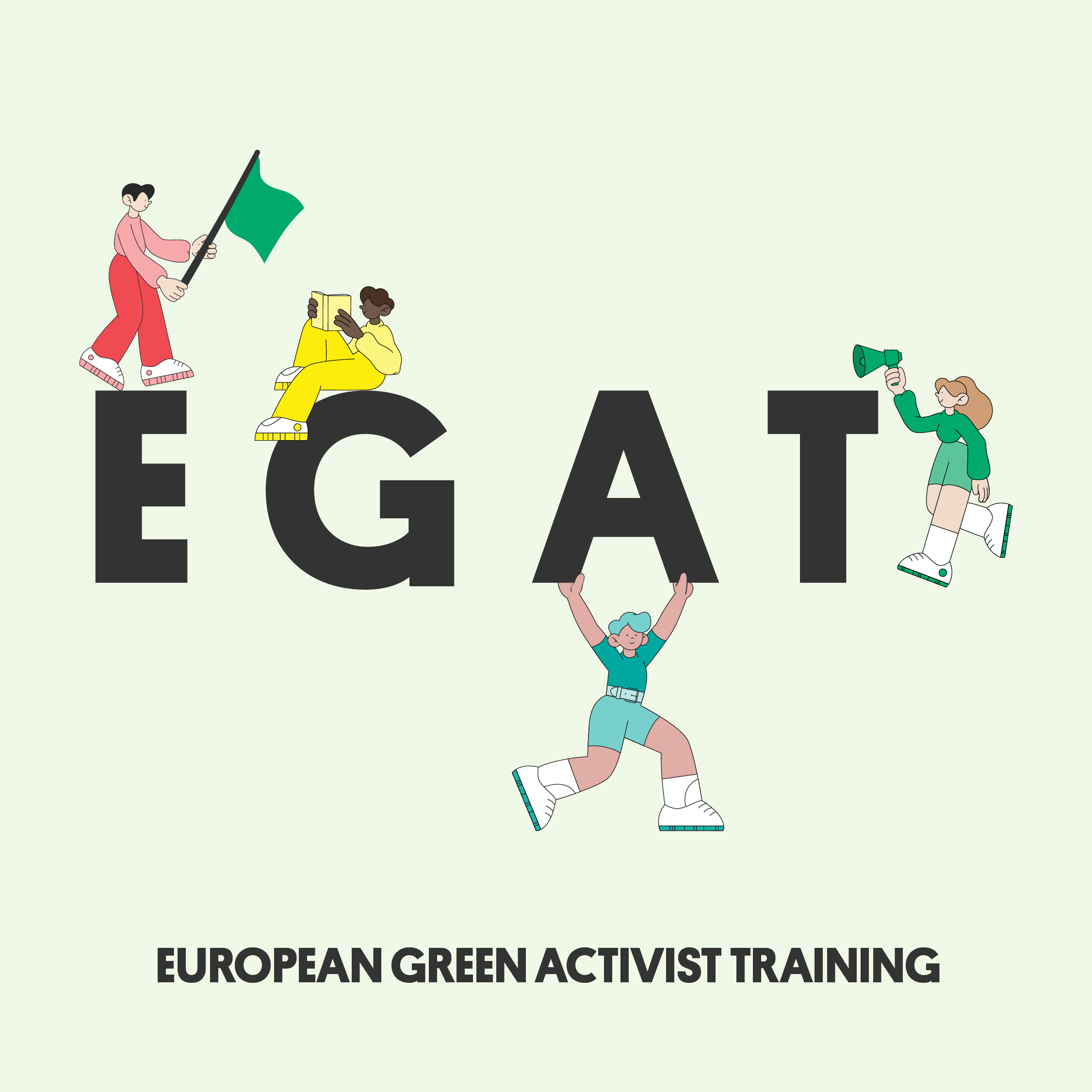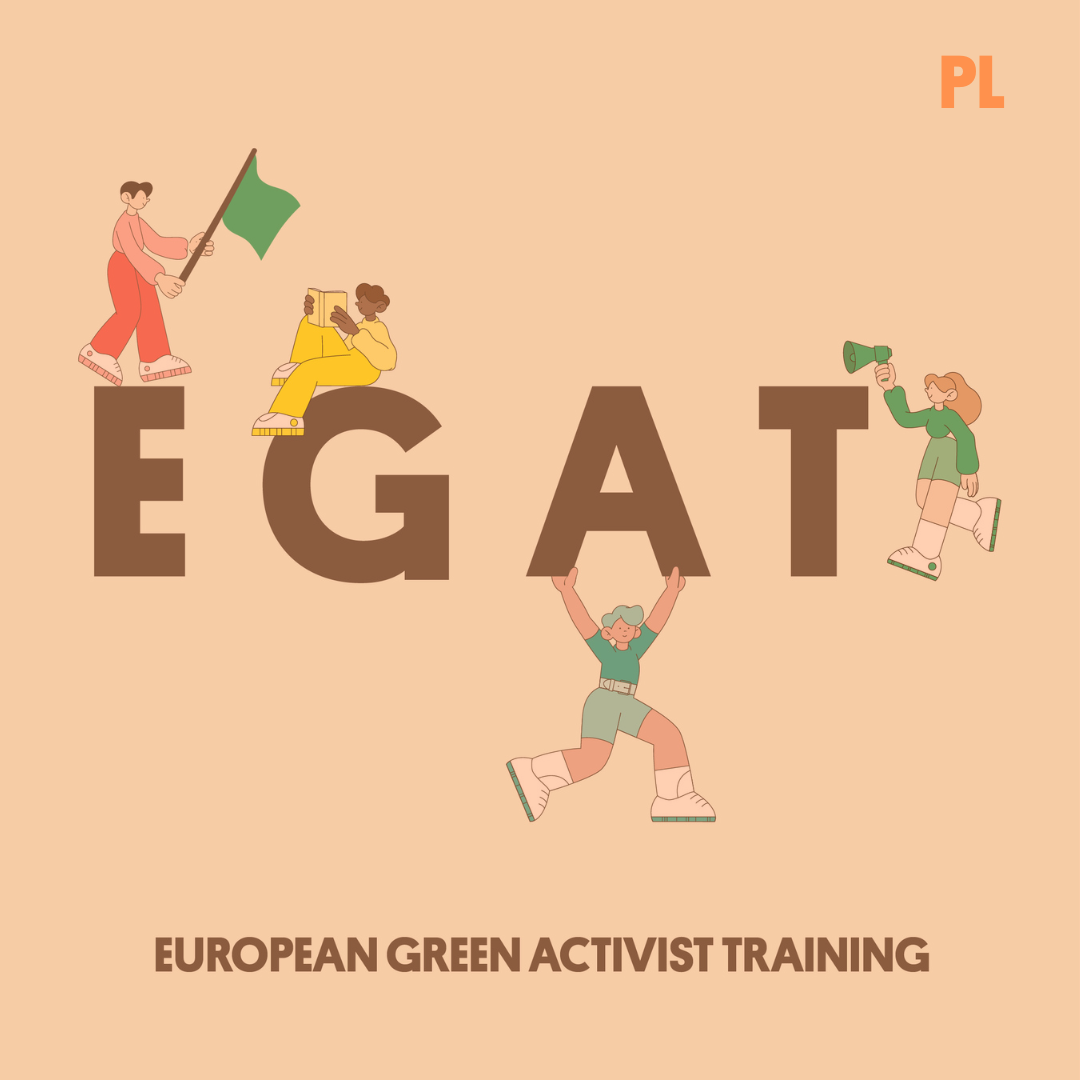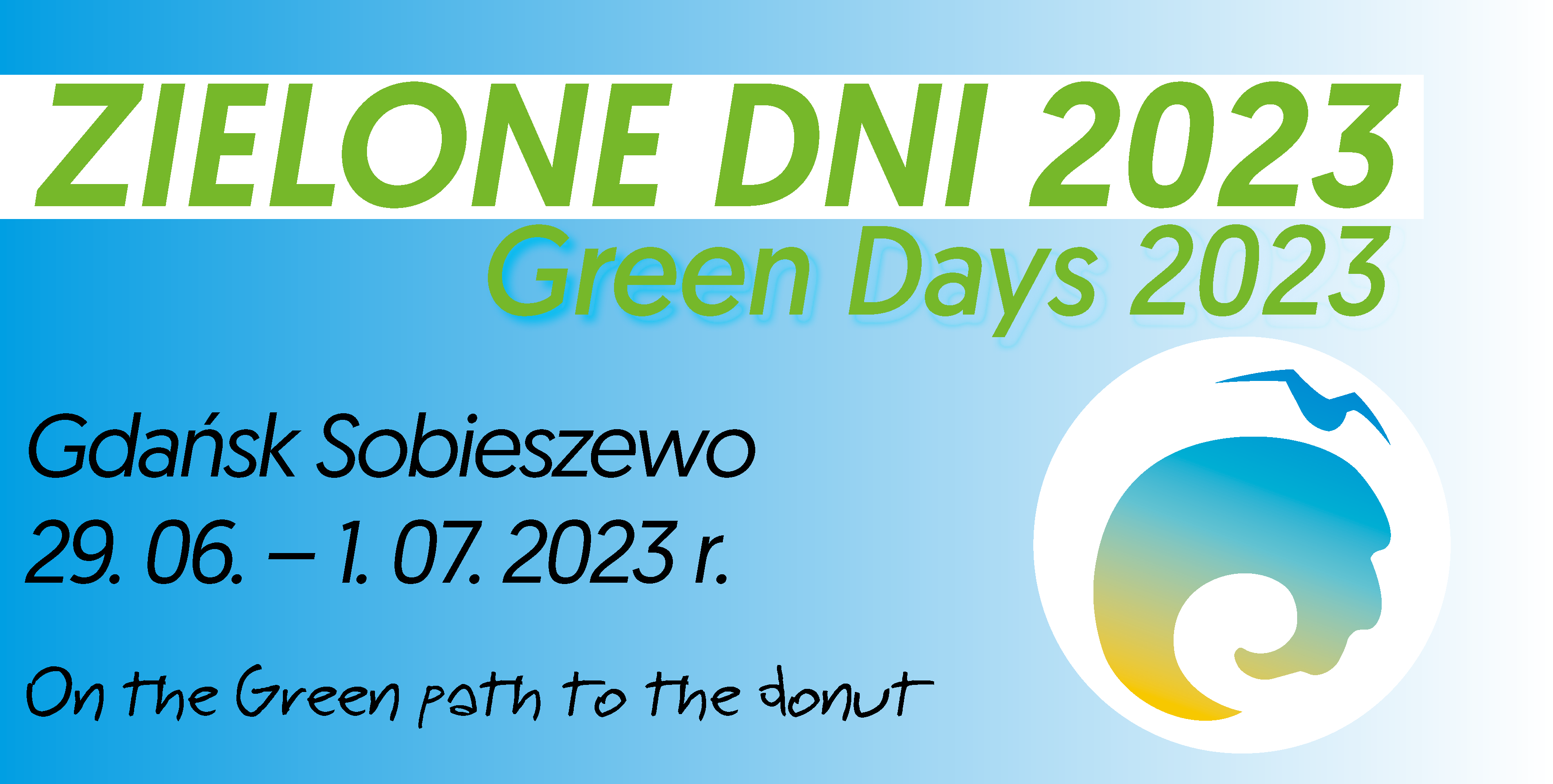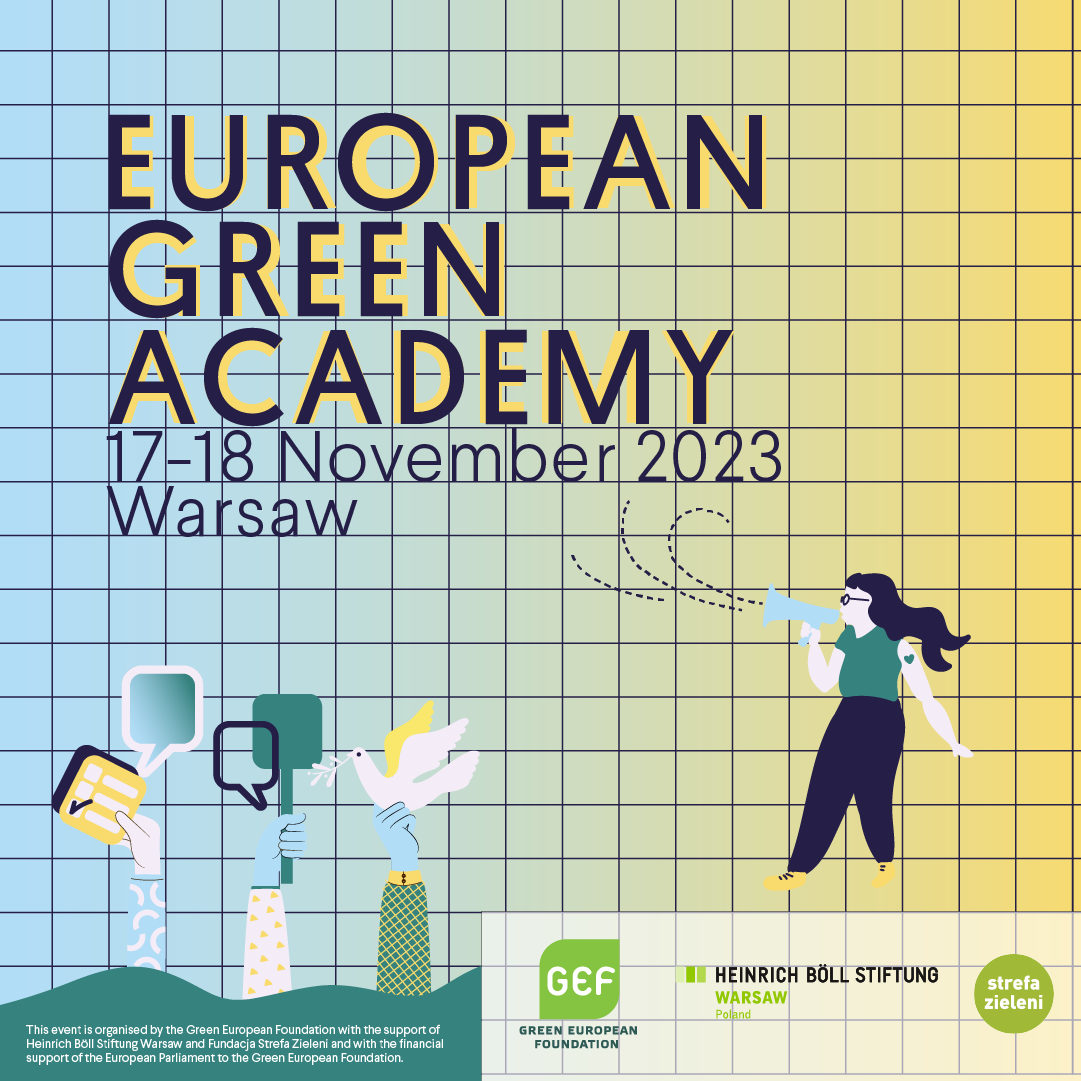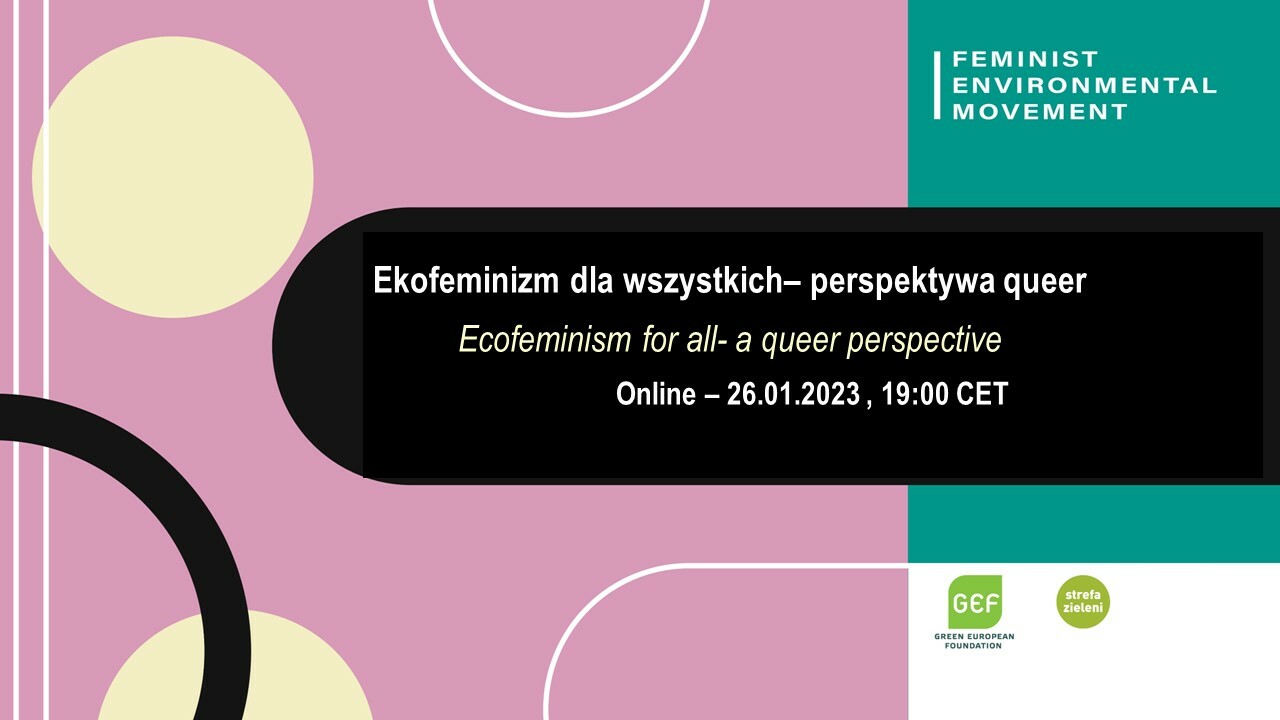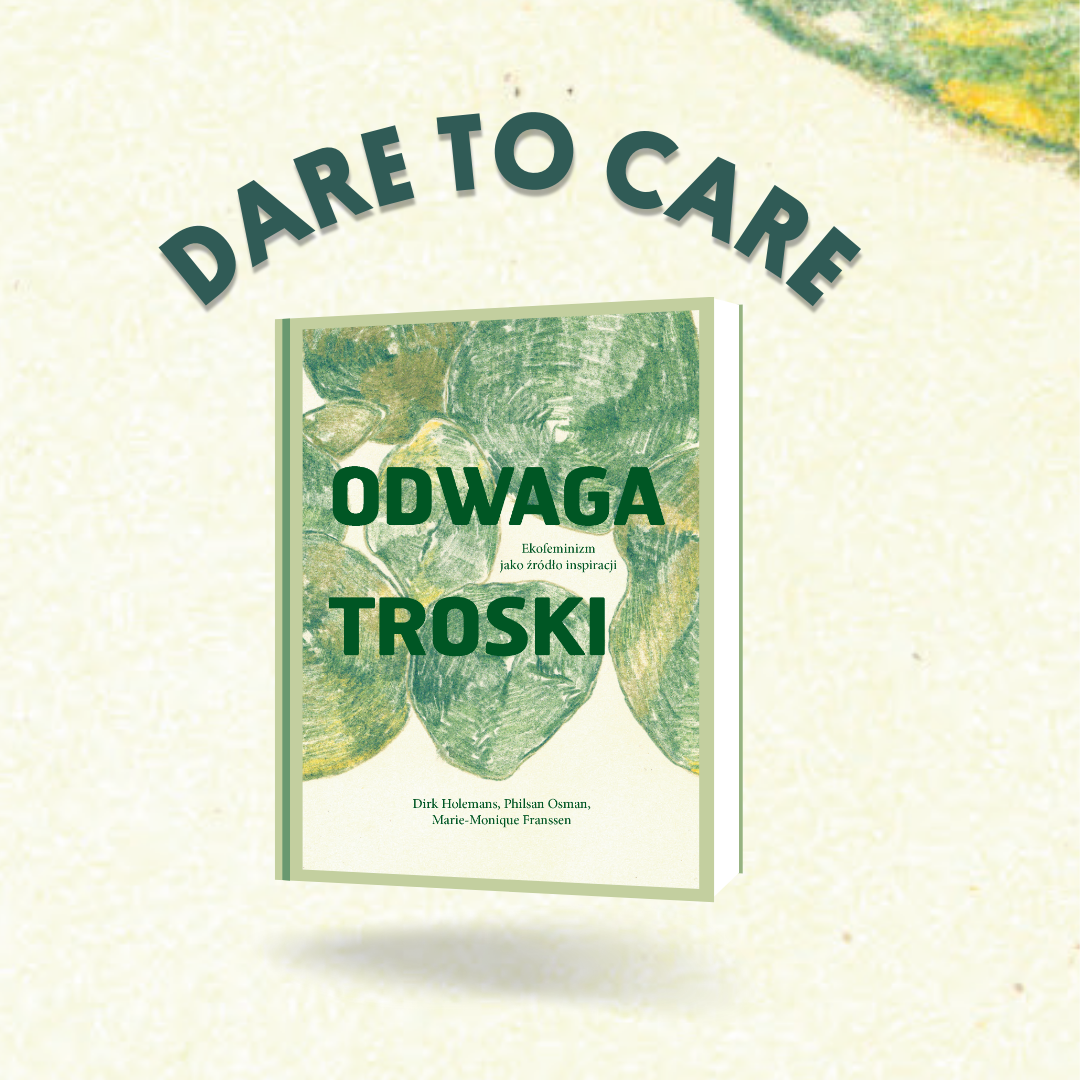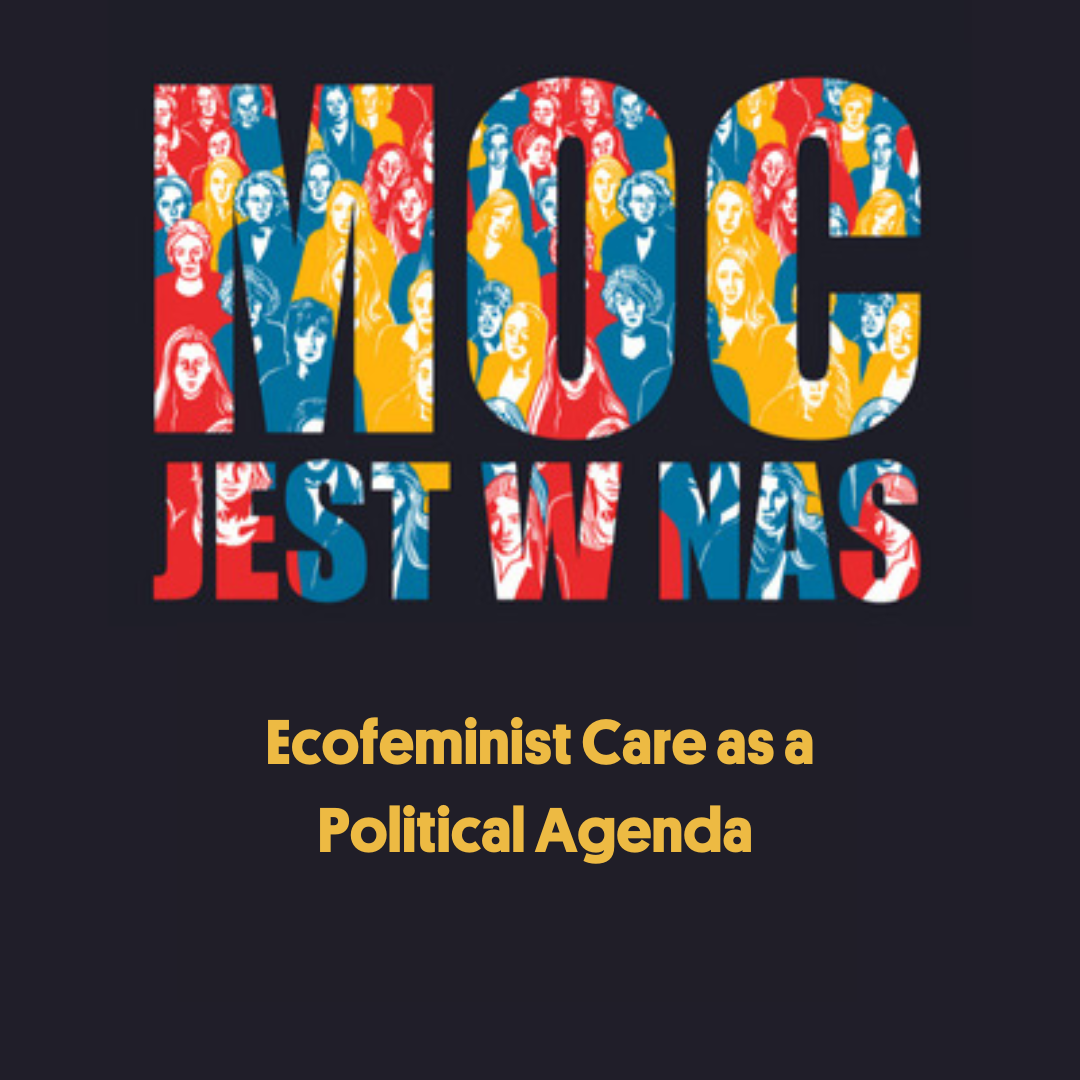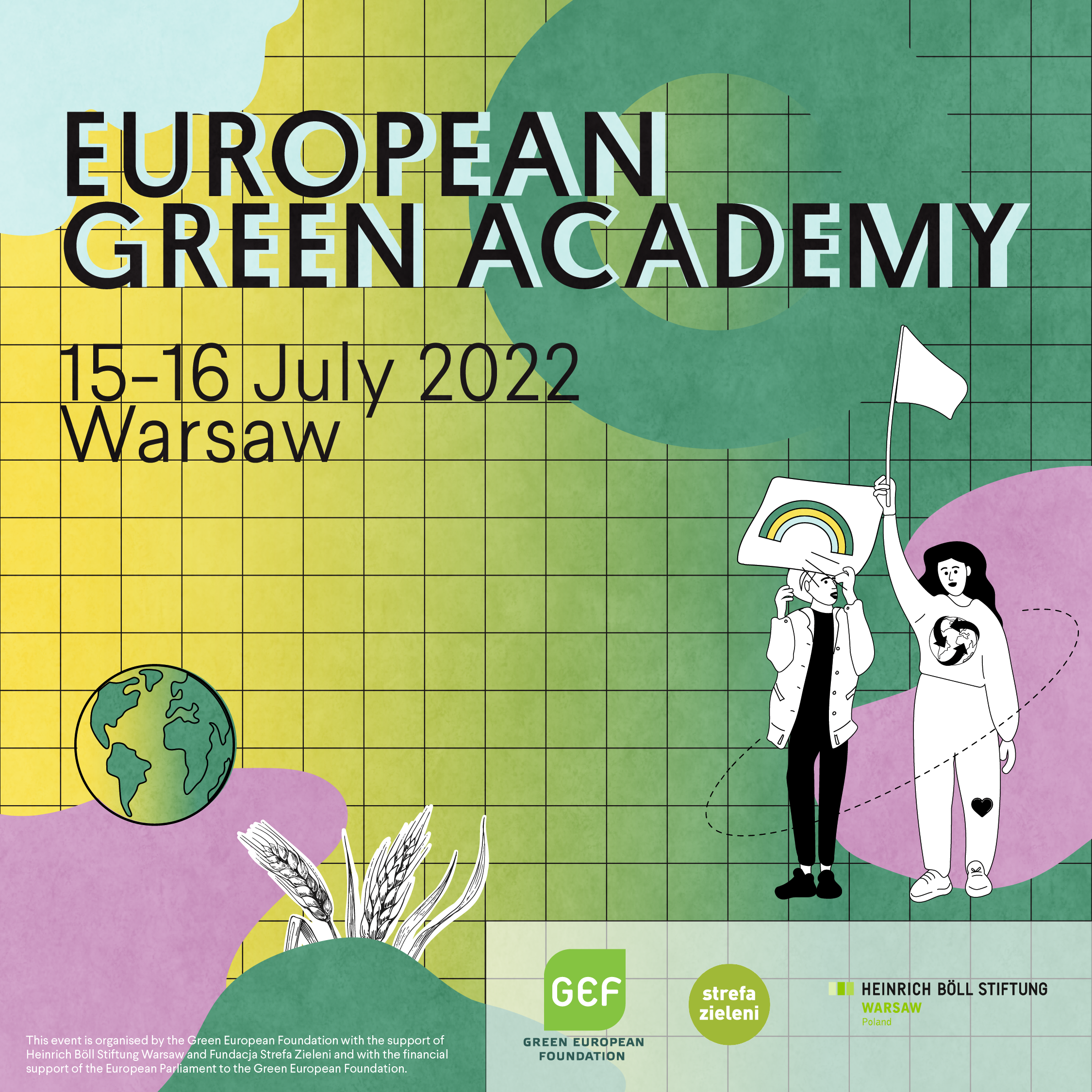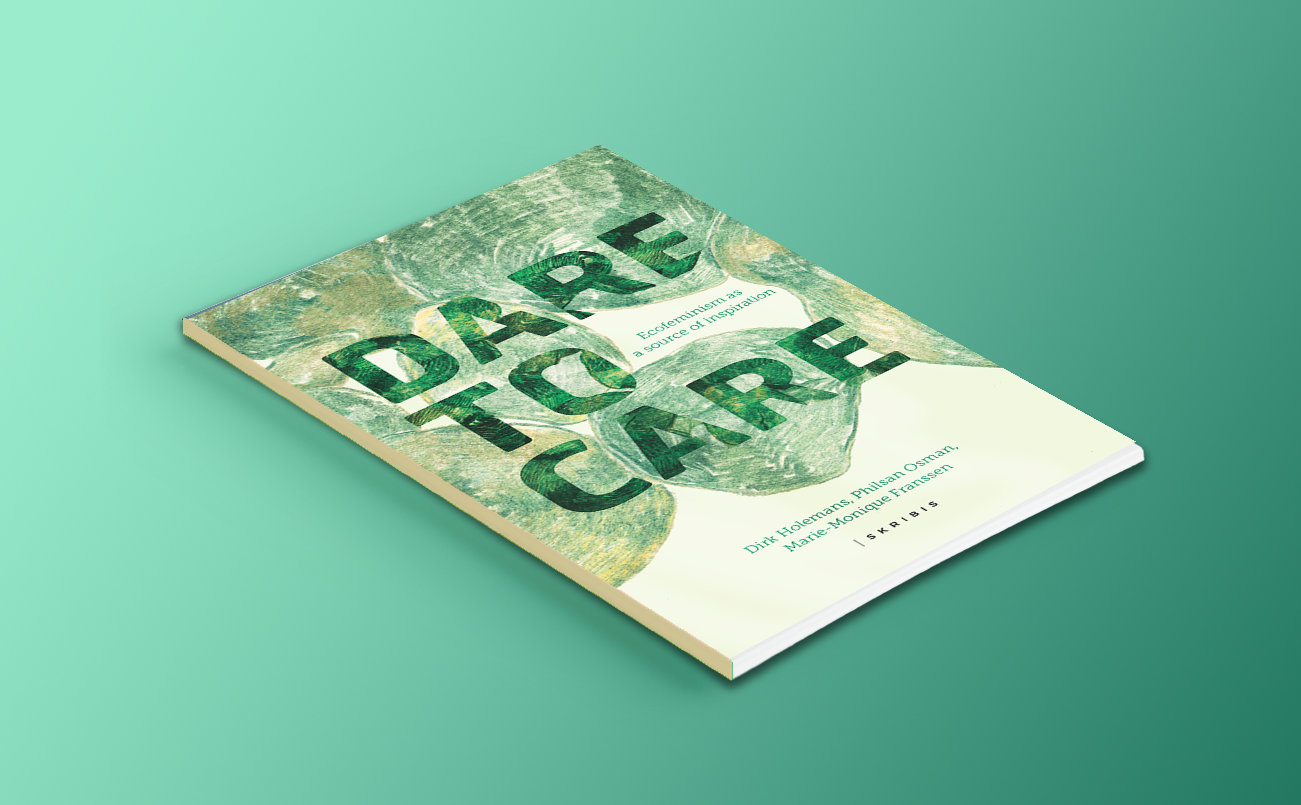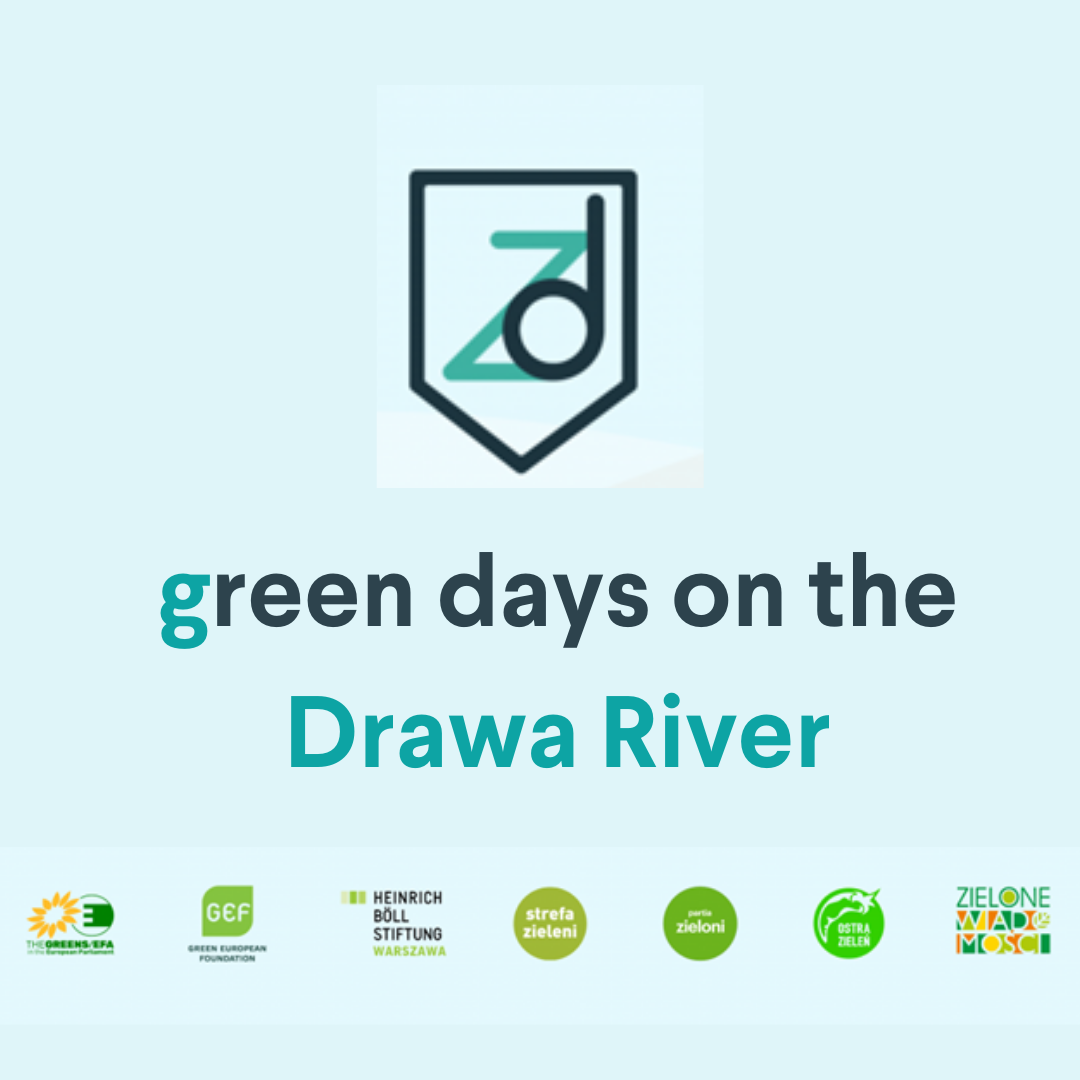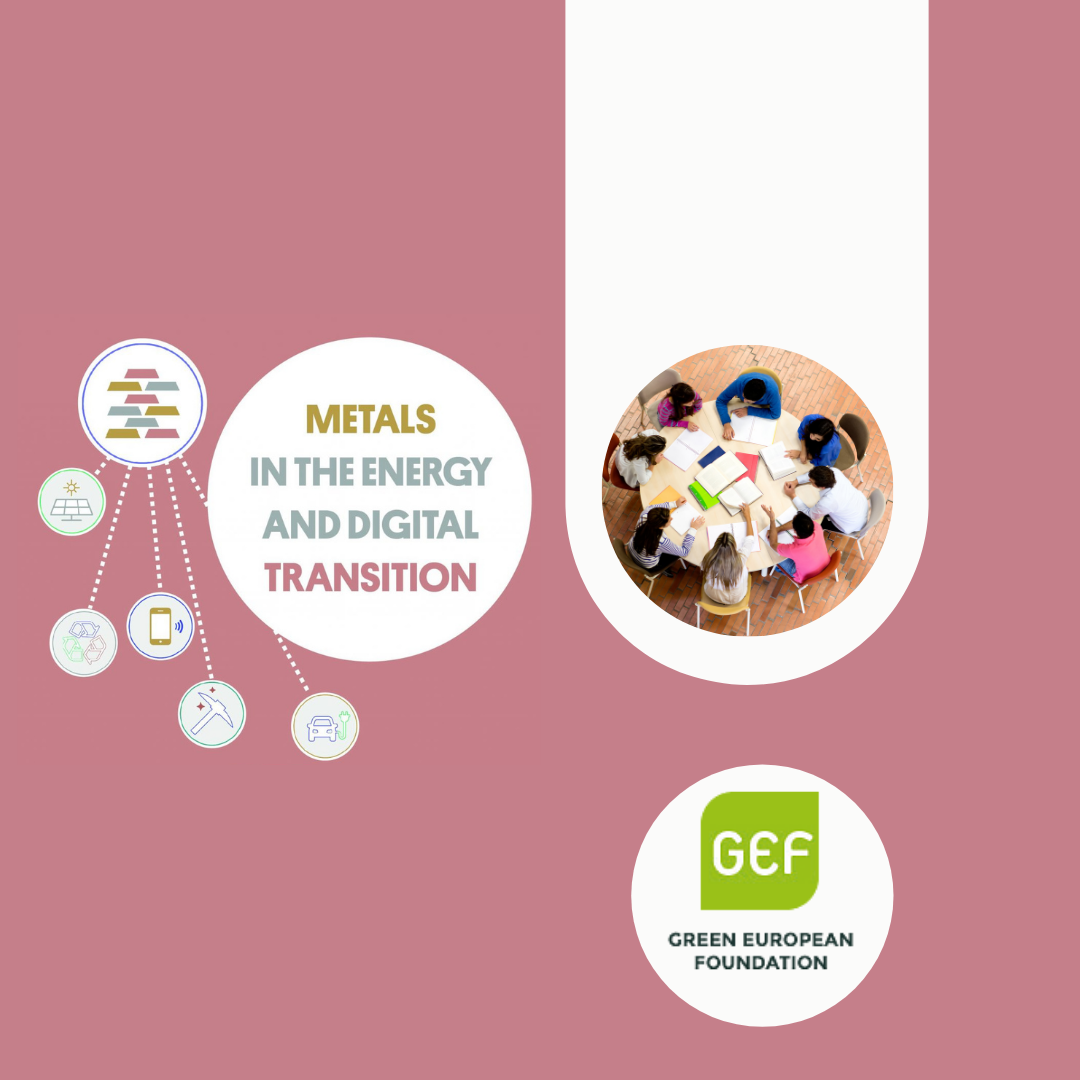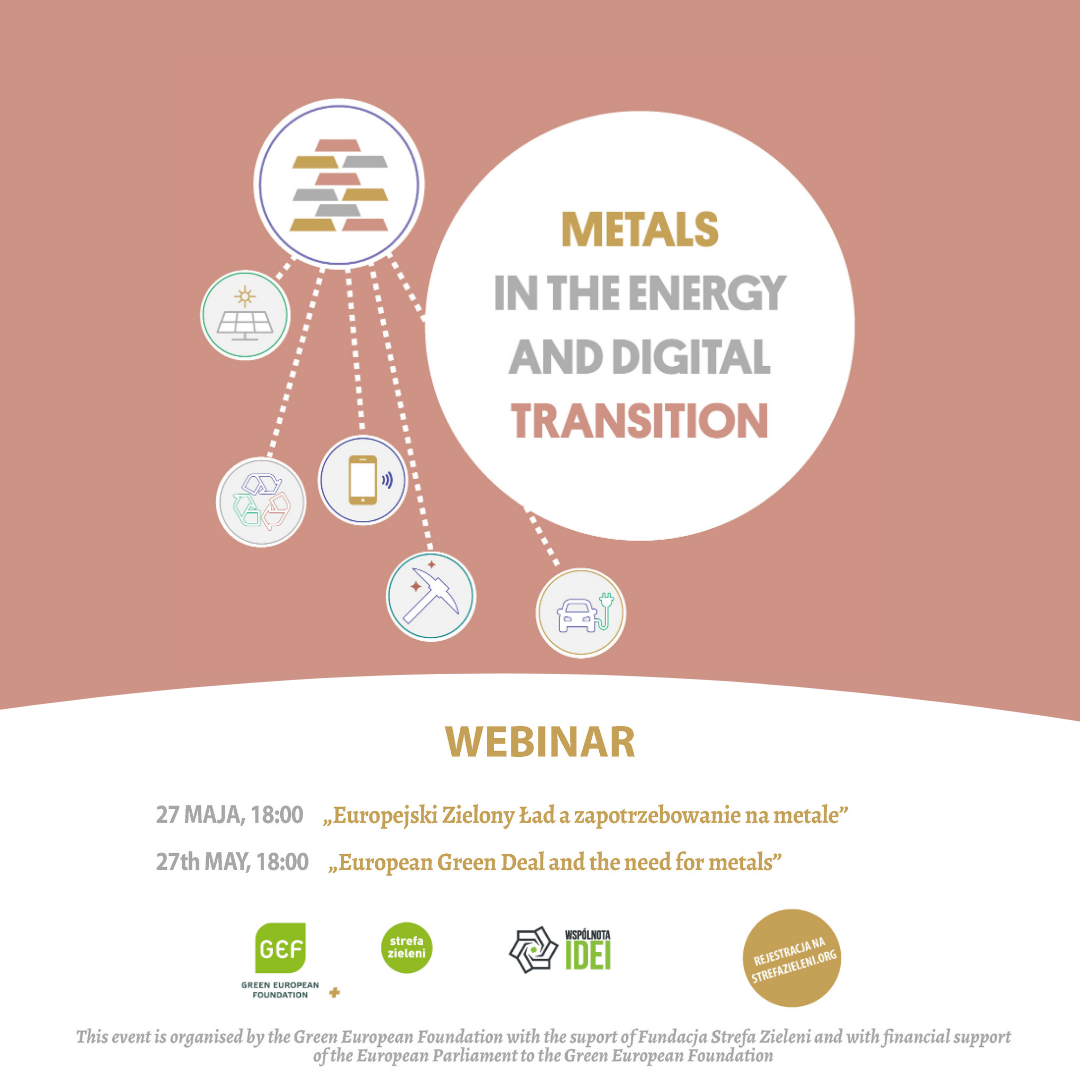

Do we really want to continue on the path of exponential growth and increasing consumerism? If we do, a major global catastrophe is inevitable. Rapid change is needed at all levels: global, European, national, regional, and local.While the European Green Deal has provided a much-needed roadmap at the EU level, its implementation, particularly the social dimension, has fallen short of many greens’ hopes and expectations. More worryingly, the progress made over the past five years is now under threat from growing conservative and far-right voices in the European Parliament and certain national governments. Amid these forces of delay and distraction, it is crucial to equip European citizens with the tools to continue fighting for a European Green Deal for All.
Poland “returned to the European Union” thanks to the extraordinary electoral mobilisation of Polish society, especially women and young people. However, with this new progressive coalition in power, it is crucial for progressive stakeholders to strengthen their bonds to ensure a lasting impact on society. Additionally, they must ensure that the new coalition remains true to the principles for which they were elected.
This one-day GEF summer school in Poland aims to connect the green movement, NGOs, activists, and other relevant stakeholders. The program will cover topics such as just energy transition, alternative models like doughnut cities and the wellbeing economy, and the future of the European Green Deal (EGD).
Sessions will explore the connections between the ecological and social dimensions of the doughnut model, with a backdrop of the European Union’s landscape following the 2024 elections, especially concerning the fate of the EGD. Particular attention will be given to exchanging local solutions and best practices to build grassroots support and resilience for eco-social policies, utilizing European tools and leverage where possible.
Regarding energy transition, the focus will be on lignite mining, which dominates this Polish-Czech-German border region, seeking cross-border exchanges and ideas.
This project connects to GEF’s strategic and thematic priorities Capacity Building for All, Go Green East and South, and Green Deal for All. Additionally, it reinforces GEF’s specific focus on Poland and maintains the momentum of our work as the European Green Academy moves to Brussels in 2024.
To be announced
10:00 – 11:30 Doughnut morning: building a thriving, just, and inclusive Europe within planetary boundaries
CONFERENCE HALL (EN/PL): Roundtable on the social doughnut – how to ensure inclusion of women, youth, LGBTQ+ residents, and people with disabilities?
PARALLEL ROOM (EN): Workshop on introducing the city-level doughnut as a social pact
11:30 – 12:00 Coffee break
12:00 – 12:45 Official opening and keynote speeches
CONFERENCE HALL (EN/PL)
12:45 – 13:45 Plenary debate: Future of the European Green Deal
CONFERENCE HALL (EN/PL): Panel discussion on EU 2024: What about the European Green Deal for All?
13:45 – 15:00 Lunch break
15:00 – 17:30 Energy transition afternoon: transborder exchanges
15:00 CONFERENCE HALL (EN/PL): Plenary presentations on transborder approach to energy transition: the future of lignite in the Tri-Earth region
16:00 CONFERENCE HALL (EN/PL): Round table discussion on the future of lignite areas of the Tri-Earth transborder region
Date and Time: 29th of June, 10AM-6PM CEST
Location: Szklarska Poręba, Poland
Language: English and Polish (simultaneous translation will be provided)
Registration and logistics: This summer school is open to everyone. Please register in advance here. After registration, you will receive a confirmation email within 5 days. Spots will be allocated on a first come, first served basis – with a final deadline of Friday, June 7th.
Participation fee: GEF’s Green Day in Poland is free for all registered participants. However, if you wish to stay in the pre-booked accommodation or participate in the side programme of activities organised by our partners (27, 28, and/or 30 June), then you will be asked to cover part of the food and accommodation costs.
You will be contacted by the organisers after registration to confirm these arrangements. Please do not let this be a barrier, as we can waive or reduce fees on a case-by-case basis.
Contact: Please email sien.hasker@gef.eu if you have any further questions or concerns.
This summer school is organised by the Green European Foundation, with the support of Strefa Zieleni and the financial support of the European Parliament to the Green European Foundation.
During this three-day study trip, participants will have the chance to explore various topics such as political ecology, lobbying and just transition in Brussels through engaging with professionals, politicians, NGOs and other activists operating in and around the European institutions, as well as with each other.
With a range of formal and non-formal training methods, including interactive workshops, the trip will be a valuable learning experience for young activists brought together by Green values and a motivation to enact change.
The European Green Activists Training (EGAT) consists of training sessions for young Green activists in various phases. These include the completion of the online course EU for Beginners, the participation in national training sessions in their respective countries on domestic politics, as well as on European politics and institutions. The final stage is the study trip, which brings all the participants from across Europe together in Brussels.
The EGAT project aims to Europeanise existing training programmes for Green activists in several European countries by incorporating more pan-European content and to make these programmes more cooperative by enabling young activists to meet and network.
Tuesday March 5 –Kick off!
Wednesday March 6
Thursday March 7
This event is organised by the Green European Foundation with the financial support of the European Parliament to the Green European Foundation. The European Parliament is not responsible for the content of this event.
The European Green Activist Training (EGAT) is an international training program for young activists interested in political ecology. This program, which is one of GEF’s flagship initiatives, has been implemented for several years in numerous European countries in cooperation with green organisations active in the region.
This year, the programme will take place in Poland for the fourth time, kicking off in Katowice, Zielona Góra and Białystok!
The EGAT workshops aim to support young activists through education and training in practical skills, but also by connecting with other like-minded individuals!
Read more about the programme here.
We invite people aged 16-21 interested in green topics, activism, social projects, democracy and human rights to participate. Young activists with little experience and from minority groups are particularly encouraged to apply!
This year, the first phase of training will happen in three cities in cooperation with activists and local organizations. Each workshop will last for one day and will take place on a Saturday.
– Katowice – October 21, 2023
– Zielona Góra – October 28, 2023
– Białystok – November 4, 2023
Participants will then take part in nationwide workshops, which will take place in early 2024 in Warsaw. During the second part, participants will connect with people from various regions of Poland to learn about the green movement and find ways to support each other in common struggles.
People participating in the national workshops in March 2024 will be able to continue their journey by joining the international stage of the project, which will take place in Brussels. During the trip, we will attend different seminars and trainings with people participating in the same programme in other countries. As a part of the trip, we’ll visit the European Parliament, engage with politicians about their paths, and discover the opportunities that may await us.
Cost
Participation in the program is free of charge. Transport costs to the workshop site for commuters will be covered by the organizers.
Application
If you are interested in the workshop, please send the completed form by the following dates:
If you have any questions or doubts, please send an email to: katarzyna.zakliczynska@pl.boell.org.
This project is organised by the Green European Foundation with the support of Heinrich Böll Stiftung Warsaw and with the financial support of the European Parliament to the Green European Foundation.
The Green Days for the Future will unite Polish green movement representatives to share their views on current issues. GEF will specifically organise three sessions: More than energy–battle for the nuclear or for the vision of future? (plenary session) Sustainable Food System–different perspectives (parallel session) and how to ensure that European Funds serve the EU’s strategic objectives?–The role of Monitoring Committees and Horizontal principles of conditionality (round table). European and Polish speakers will engage in the debate together and offer valuable insights into the topics.
This event is part of the Polish Green Days project in which green actors address central challenges for a green Europe. The energy crisis forces states to rethink their energy policy, which will be more closely discussed. Additionally, there is a need for a sustainable plan to guarantee food is accessible and affordable to everyone.
Friday, 30th June 2023
10:30 – 11:45 Opening Plenary – More than energy – battle for the nuclear or for the vision of the future?
12:00 – 13:15 Sustainable Food System – various perspectives
Saturday, 1st July 2023
11:45-13:15 How to ensure that European Funds serve the EU’s strategic objectives? – The Role of Monitoring Committees; Horizontal Principles of Conditionality
You can access the full Green Days schedule – including more speakers and other sessions not organised by GEF – via this link.
Date and Time: 29th June 15:00 – 1st July 19:00
Location: Hotel Orle, Lazurowa 8, 80-680 Gdańsk
Language: The main languages of the event will be Polish and English, with some sessions with simultaneous interpretation provided EN<>PL.
Registration: Registrations are now closed.
This summer school sessions is organised by the Green European Foundation, with the support of Strefa Zieleni and the financial support of the European Parliament to the Green European Foundation.
Click here to access the information about the event in polish or check our Facebook event.
Klliknij tutaj, aby zobaczyć więcej informacji po polsku lub sprawdź nasze wydarzenie na Facebooku.
After a successful first edition, the European Green Academy opens its doors for the second time this autumn! From 17-18 November 2023, the Green European Foundation together with Heinrich Böll Stiftung Warsaw, Strefa Zieleni, and Ostra Zielen will invite diverse green actors, activists, politicians, and academics from all over Europe to explore salient green issues and build bridges between national and European-level debates.
In the context of the current polycrisis and looking ahead to 2024 as a pivotal year for Europe, this year the Academy will address three key themes: Democratic Resilience, Peace & Security and the Social Dimension of the Green Deal.
Via a diverse range of formats, including workshops, training, plenary debates, and networking activities, the European Green Academy seeks to equip participants with knowledge and skills, the ability to link national green ideas and debates to the European sphere, and to make new connections to further their involvement in the green movement.
Read about last year’s edition here.
![]() Peace & Security
Peace & Security
![]() Democratic Resilience
Democratic Resilience
![]() Social dimension of the Green Deal
Social dimension of the Green Deal
Rooms: Bruskela, Berlin, Rzym, Lizbona, Madryt, Paryż
14:00-14:10 | OPENINGFoyer | |||
14:00-15:00 | ⊷CONNECT (EN & PL)Foyer | |||
15:00-15:30 | ◉ OPENING KEYNOTE (EN & PL)Bruksela + Berlin + Rzym | |||
15:30-17:00 |
| |||
| ●~●~●~● | |||
17:15-18:45 | PARALLEL SESSIONS | |||
Bruksela |
Berlin | Rzym |
Lizbona + Madryt | |
19:00– 21:00 | NETWORKING DINNERFoyer | |||
09:00-09:30 | ⊷ CONNECTBruksela + Berlin + Rzym | |||
09:30 – 11:00 | ◉PLENARY (EN)Security and Democratic Resilience (Central and Eastern Europe) Bruksela + Berlin + Rzym | |||
11:00-11:30 | BREAK | |||
11:30 – 13:00 | PARALLEL SESSIONS | |||
Rzym | Bruksela |
Lizbona + Madryt | ||
13:00-14:30 | LUNCH | |||
| 14:30 – 15:30 | Rzym |
Bruksela + Berlin | ||
15:45 – 17:15 | PARALLEL SESSIONS | |||
Bruksela + Berlin |
Lizbona + Madryt |
Rzym | ||
| 17:30 – 18:30 | ◉CLOSING (EN & PL)Bruksela + Berlin + Rzym | |||
Date: 17-18 November 2023
Location: Centrum Konferencyjne West Gate (Warsaw, Poland)
Language: English and Polish.
Registration deadline: Please note: Registrations are now closed. For any late registration requests, please contact alina.zmuda@gef.eu.
For questions or more information, contact alice.hubbard@gef.eu.
Help us get activists from underrepresented backgrounds to the European Green Academy!
As not everyone can afford to attend the academy, we’ve put in place an optional solidarity fee for participants who have the means to contribute in solidarity with others. By paying the solidarity fee (30 EUR – 120 EUR), you’re supporting young activists from underrepresented backgrounds or those who can’t afford to travel to Warsaw for the Academy. Please note, if GEF sponsors your accommodation and/or travel, this fee is obligatory. Click here to pay a solidarity fee (please note that the previous link is not the official registration page; registrations at the bottom of this page).
OPENING KEYNOTE:
PLENARY I
PLENARY II
CLOSING KEYNOTE
Learn more about them here.
The following organisations sponsored the attendance of participants to the European Green Academy: European Green Party, International Bureau of Groenlinks, Heinrich-Böll-Stiftung Kyiv, Heinrich-Böll-Stiftung Warsaw, Westminster Foundation for Democracy.
This event is organised by the Green European Foundation with the support of the Fundacja Strefa Zieleni, Heinrich Böll Stiftung Warsaw and with the financial support of the European Parliament to the Green European Foundation.
The European Green Activist Training (EGAT) is an international training program for young people (16-26 years old) culminating in a study visit to the European Parliament. EGAT takes place between October 2022 and March 2023. During this time, participants will take part in 6 weeks of e-learning and 3 stationary meetings (in Warsaw), during which they will learn how the European Parliament works and how implement local social campaigns and projects. Finally, they will receive mentoring and support to implement their own projects and activities.
What awaits the participants of EGAT?
1. Three stationary (or hybrid) meetings in Poland.
2. Participation in 6 weeks of e-learning courses on the functioning of European Parliament.
3. Support from mentors in the implementation of their own campaigns or local projects.
4. Participation in a study visit to the European Parliament in March 2023.
Calendar
During the meetings participants will get to know each other, establish new contacts and learn to plan actions and activities together. During e-learning, they will learn about the structure and functioning of the European Parliament and deepen their knowledge on policy issues. In case of a pandemic lockdown meetings might be organized online or in hybrid format. The offline meetings will take place on the following dates:
I) 28-30 October 2022.
II) 18-20 November 2022.
III) 9-11 December 2022.
Enriched with new knowledge, participants of EGAT will be able to start implementing their own ideas for action. In small teams (4-5 people) they will implement their small, local or online projects. They will receive the support of mentors to implement their ideas. Project implementation is not a mandatory element of the program, but participants will be strongly encouraged to implement their own projects.
• March 2023 – visit to the European Parliament
Participants who complete all stages of the EGAT will take part in a visit to the European Parliament together with a hundred people from other countries, where similar trainings take place (Finland, Czech Republic, Croatia, Hungary, Spain, Greece). During 3 days of the study tour they will visit the Parliament, meet MEPs and take part in joint workshops with young activists from other countries. Participation in the a study visit is not obligatory. In case of a pandemic lockdown the visit might be organized online.
Cost
Participants have to bear only 10% of the cost of participation in the training, i.e. 200 PLN. The European Parliament, Green European Foundation and Strefa Zieleni Foundation will cover the costs of participation in three stationary meetings (including travel, accommodation and meals), as well as the cost of participation in a study visit to the European Parliament (travel, accommodation and meals).
In case of a difficult financial situation, please contact us (fundacja@strefazieleni.org). We want everyone to be able to participate in the program, regardless of their financial situation, therefore, it is possible to cover 100% of participation cost for persons who are not able to pay the participation fee.
Application
Please fill in this form no later than 12th October, 2022, 23:59. All accepted candidates will be informed about the results by 20th October.
This project is organised by the Green European Foundation with the support of Fundacja Strefa Zieleni and with the financial support of the European Parliament to the Green European Foundation.
During the three-day study trip, participants will have the chance to explore various topics such as climate justice and lobbying in Brussels through engaging with professionals, politicians, NGOs and other activists operating in and around the European institutions, as well as with each other.
With a range of formal and non-formal training methods, including interactive workshops, the trip will be a valuable learning experience for young activists brought together by Green values and a motivation to enact change.
The European Green Activists Training (EGAT) consists of training sessions for young Green activists in various phases. These include the completion of the online course EU for Beginners, the participation in national training sessions in their respective countries on domestic politics, as well as on European politics and institutions. The final stage is the study trip, which brings all the participants from across Europe together in Brussels.
The EGAT project aims to Europeanise existing training programmes for Green activists in several European countries by incorporating more pan-European content and to make these programmes more cooperative by enabling young activists to meet and network.
Tuesday March 7 – Getting to know each other, the green movement and the green family
Wednesday March 8– Visit to European Parliament and Activism in practice
Thursday March 9 – Lobby in the EU and visit to the European Parliament
This event is organised by the Green European Foundation with the financial support of the European Parliament to the Green European Foundation. The European Parliament is not responsible for the content of this event.
For the past two years, the Green European Foundation and its partners across Europe have been exploring the concept of ecofeminism in all its facets, especially the lessons it holds for the multiple crises of care that our continent faces. At the same time, we trained a cohort of Feminist Climate Ambassadors, building skills, knowledge and networking in the connected fights for environmental and gender justice.
This closing webinar will begin with a video message by Barbora Madjisova, a Feminist Climate Ambassador from Slovakia, who will discuss the manifesto created by our ambassadors at COP26, and introduce the topic of queer ecofeminism from a European perspective.
Then, we move into a discussion with a diverse panel of experts, exploring further what queer ecofeminism is, why it is needed, and how it could develop in a Polish context.
Barbora Majdisova – 2021 GEF Feminist Climate Ambassador
Gabriela Jarzębowska – Faculty of Liberal Arts, University of Warsaw
Monika Kotulak – environmental educator
Anna Maziarska – journalist, activist, Warsaw Women’s Council
Moderated by: Paulina Januszewska, Krytyka Polityczna
This event is part of Feminists in the Environmental Movement, a GEF transnational project that seeks to stimulate conversations around (the intersections of) gender and environmental justice across Europe. The project is implemented with the support of Visio (Finland), Oikos (Belgium), Strefa Zieleni (Poland), Green Thought Association (Turkey), and CDNEE.
Date and time: Thursday, January 26th (19:00-20:00 CET)
Location: Online, via Zoom
Language: Polish
Registration: To join the webinar, please register in advance via this link. The event will also be livestreamed on Facebook. More information here.
Pick up a copy of Dare to Care at a future GEF event near you, or find it online in several languages via this link.
This webinar is organised by the Green European Foundation, with the support of Fundacja Strefa Zieleni and the financial support of the European Parliament to the Green European Foundation.
Care includes everything we do to preserve and restore the world. The multiple crises, or perhaps polycrisis that we are facing, show the importance of daring to care. The erosion of the welfare state, the ongoing war in Ukraine, the plundering of the Global South, and the crossing of planetary boundaries are alarming, to say the least. There is also a link between the exploitation of people and nature. Imagine what could happen if we found the courage to care for all people and other earthlings.
Can care offer us a fresh start based on interconnectedness and generosity? How can care, as an emancipatory principle, underpin politics and the economy? In this webinar, we will dive deeper into the content of the essay with author Philsan Osman, and have a Q&A with the audience.
This webinar is part of Feminists in the Environmental Movement, a GEF transnational project that seeks to stimulate conversations around (the intersections of) gender and environmental justice across Europe. The project is implemented with the support of Visio (Finland), Green Economics Institute (UK), Oikos (Belgium), Strefa Zieleni (Poland), Green Thought Association (Turkey), and CDNEE.
Philsan Osman – Dare to Care co-author, activist and community builder
Moderated by Ewa Sufin-Jacquemart, GEF Board member and director of the Green Polish foundation “Strefa Zieleni”
Date and time: Thursday, January 12th (19:00 CET)
Language: English and Polish, with simultaneous translation
Registration: The event will take place online via Zoom and is open to all. Please register in advance via this link.
This event will revolve around Dare to Care, GEF’s ecofeminist booklet that is now available in multiple languages including Polish.
If you are looking for more resources on feminism and the green movement, do check out our e-learning course Green Feminism!
This workshop is organised by the Green European Foundation with the support of Strefa Zieleni and the financial support of the European Parliament to the Green European Foundation.
For fourteen years now, women with different professions, views, and orientation from Poland, have been meeting to discuss gender issues, democracy, national and local politics but also to strengthen ties and empower each other.
The 14th Congress of Women will be held in the shadow of war with Ukrainian women as welcome guests. However, the war will not overshadow one of the most important problems of our time – the climate crisis. Speakers and participants will come together to debate on what women can do to combat the crisis. The Congress will also cover other crucial topics such as the fragile state of Polish democracy, economic downturn, culture and education and feminist debates. etc.
This round-table discussion, hosted by GEF with the support of Strefa Zieleni, will specifically explore the role of ecofeminism and care as political agenda. What lessons and opportunities for mobilisation does it hold? How is it crucial to address our current crises? Participants will be joined by a first-rate group of panelists as well as a video intervention from Prof. Magdalena Środa, and English and Polish language copies of the GEF publication Dare to Care will be available for all.
Magdalena Gałkiewicz – Gals4Gals and Partia Zieloni (Polish Green Party) secretary
Ewa Sufin-Jacquemart – Green European Foundation / Strefa Zieleni
Ewa Ernst-Dziedzic – MP for Die Grünen (Austrian Green Party)
Dr. Monika Żółkoś – University of Gdańsk
Dominika Lasota – Fridays For Future
Angelika Kimbort – Otwarte Klatki, Wrocław
Moderated by: Elżbieta Osowicz – Radio Wroclaw
This event is part of Feminists in the Environmental Movement, a GEF transnational project that seeks to stimulate conversations around (the intersections of) gender and environmental justice across Europe. The project is implemented with the support of Visio (Finland), Green Economics Institute (UK), Oikos (Belgium), Strefa Zieleni (Poland), Green Thought Association (Turkey), and CDNEE.
Date and time: Saturday, October 8th (15:00-16:10 CEST). The Congress of Women takes place from 8-9 October and features a wide range of sessions across multiple venues. To learn more about the rest of the programme, check the official website.
Location: Green Center at Hala Stulecia (Centennial Hall), Wrocław, Poland.
Audience and registration: This event will take place in Polish and is open to registered participants. Please make sure to register in advance via the Congress of Women website. For those who are not able to join in person, the event will be livestreamed (in Polish) on the YouTube channel of Strefa Zieleni
Pick up a copy of Dare to Care at a future GEF event near you, or find it online via this link.
For more on this topic, check out these articles and others from our flagship publication, the Green European Journal:
Fighting the Patriarchy to Save the Planet
Gender in Climate Governance: Telling Numbers but Who is Listening?
Gender Justice: Beyond Binaries and Buzzwords
Françoise d’Eaubonne and the Imperfect Foundation of Ecofeminist Thought
The Cost of Care: Rethinking Value in Times of Crisis
This webinar is organised by the Green European Foundation, with the support Fundacja Strefa Zieleni and Oikos and the financial support of the European Parliament to the Green European Foundation.
The European Green Academy opens its doors for the first time! On this occasion, the Green European Foundation, in cooperation with Strefa Zieleni and Heinrich Böll Stiftung Warsaw will invite diverse green actors, activists, politicians, and academics from all over Europe to further explore the political situation in Poland and build bridges and connections between national and European-level debates.
Topics and methods
The Academy will be the key meeting point for over 150 Green actors and interested citizens from Poland and across Europe to connect, debate, and build capacities. With this initiative, the organisers seek to promote an inspiring learning environment, facilitating skills building to collectively bring about a better future. With that in mind, the programme will delve into salient green issues via a diverse range of formats, including workshops, training, plenary debates and networking. The Academy will also serve as a space to strengthen connections between the Polish and European Green movements. The sessions will be split into four different streams:
The Green European Academy will be hosted by Agnieszka Lichnerowicz and Sebastian Wehrsig
08:45 – 09:30 | ARRIVAL AND REGISTRATIONS | |||
09:30 – 11:00 | STREAMS | |||
Parallel 1 | Roundtable | Conference Hall | Parallel 2 | |
| ⇉ Doughnut Economy in Polish Cities: Utopia or Political Project? [EN] | 🕊 Refugees and Migration: Poland, Ukraine and the EU Perspective [EN] | ✹ Shared Energy, Efficient, and Sufficient Energy, [EN/PL] [EN] | ⚧ LGBTIQA+ Rights in the Green Movement
[PL] | |
11:15 – 12:15 | ⊷ CONNECT | |||
12:15-12:45 | GROUP PHOTORoof Terrace | |||
12:45 – 14:15 | LUNCH | |||
| 14:15 – 14:45 | WELCOME [EN/PL]Conference Hall | |||
| 14:45 – 16:15 | PLENARY | |||
| 16:15-16:45 | BREAK | |||
| 16:45 – 18:15 | STREAMS | |||
| Conference Hall | Roundtable | Parallel 2 | Parallel 1 |
| ⇉ [EN/PL] | 🕊 [PL/EN] | ✹ [EN/PL] | ⚧ [EN/PL] | |
| 18:30 – 20:30 | ⊷ NETWORKING DINNERRoof Terrace | |||
09:30 – 10:00 | ◉ KEYNOTEConference Hall | |||
10:00– 11:30 | ◉ PLENARYPeace and Security: What do Polish and Ukrainian Perspectives Mean for the Debate on a Green European Vision for Security? [EN/PL] Conference Hall | |||
11:30 – 11:45 | BREAK | |||
11:45 – 13:15 | STREAMS | |||
| Conference Hall | Parallel 1 | Roundtable | Parallel 2 | |
🕊 Food Security in Times of Crisis [EN/PL] | ✹ Metals for the Energy Transition [EN] | ⚧ Reproductive Rights in Central and Eastern Europe [EN/PL] | ||
13:20 – 14:00 | ENERGY SECURITY: A EUROPEAN PERSPECTIVE [EN & PL]Conference Hall | |||
14:00 – 15:30 | LUNCH | |||
15:30 – 17:00 | STREAMS | |||
Parallel 1 | Conference Hall | Parallel 2 | Roundtable | |
| ⇉ [EN]
| 🕊 Biodiversity & Conflict: the Environmental Cost of the War in Ukraine [EN & PL] | ✹ Skills Training – Tiktok: Debunking Disinformation on Nuclear [EN/PL] | ⚧ Dare to Care or Ecofeminist Power of Change [EN/PL] |
| 17:00 – 19:00 | 📽 SCREENING AND DEBATEConference Hall | |||
Practicalities
Date: 15-16 July 2022
Location: Conference Hall at the Copernicus Science Centre (Centrum Nauki Kopernik), Warsaw, Poland
Language: English and Polish.
Registrations are now closed.
For questions or more information, contact antoine.preel-dumas@gef.eu.
This event is organised by the Green European Foundation with the support of the Fundacja Strefa Zieleni, Heinrich Böll Stiftung Warsaw and with the financial support of the European Parliament to the Green European Foundation.
During the five-day study trip, will have the chance to explore various topics such as climate justice and lobbying in Brussels through engaging with professionals, politicians, NGOs and other activists operating in and around the European institutions, as well as with each other.
With a range of formal and non-formal training methods, including interactive workshops, the trip will be a valuable learning experience for young activists brought together by Green values and a motivation to enact change.
The European Green Activists Training (EGAT) consists of training sessions for young Green activists in various phases. These include the completion of the online course EU for Beginners, the participation in national training sessions in their respective countries on domestic politics, as well as on European politics and institutions. The final stage is the study trip, which brings all the participants from across Europe together in Brussels.
The EGAT project aims to Europeanise existing training programmes for Green activists in several European countries by incorporating more pan-European content and to make these programmes more cooperative by enabling young activists to meet and network.
Monday 30th May– Getting to know each other and working together!
Tuesday 31st May – Green movement from a political perspective
Wednesday 1st June– Activism, Culture and Community
Thursday 2nd June – Lobby in the EU: the good and the bad
About previous editions:
This event is organised by the Green European Foundation with the financial support of the European Parliament to the Green European Foundation. The European Parliament is not responsible for the content of this event.
The concept of care has become increasingly important as COVID-19 continues to make its way through populations worldwide. However, care extends beyond the strictly medical: it encompasses everything we do to preserve and restore our planet. The erosion of the welfare state, the continued plundering of the Global South, the lack of solidarity, and the persistent crossing of planetary boundaries is alarming to say the least. We can only turn the tide if we leave the instrumental view of nature and humans behind and radically care for all earthlings.
Can care offer us a fresh start based on interconnectedness, and generosity? How can care, as an emancipatory principle, underpin politics and the economy?
In this booklet, we offer you a crash course in ecofeminism and invite you to get inspired by different people and movements across the world. Ultimately, these lessons, which relate to the many challenges we face today, aim to encourage us all to question ourselves about what truly means to build an “economy of care” in Europe and beyond.
Available in Polish.
Available in Turkish.
Available in Greek.
Available in Serbian.
Available in E-Reader format or to order in German.
About the authors
Dirk Holemans is the coordinator of Oikos think tank and co-president of the Green European Foundation (GEF). He is a researcher, lecturer and the author of Freedom & Security (EPO, 2016).
Philsan Osman studies African languages and cultures at the University of Ghent, Belgium and is a writer, activist and community builder.
Marie-Monique Franssen is staff member of Oikos think tank and co-author of The Ecological Compass (EPO, 2020). She has a master’s degree in cultural anthropology.
These translations have been realised with the support of Oikos, FREDA, and Strefa Zieleni and the financial support of the European Parliament to the Green European Foundation. The European Parliament is not responsible for the content of this publication.
The climate crisis leaves us no choice but to make a swift transition from fossil fuels to renewable energies. However, while energy from renewable sources such as solar and wind is nearly infinite, the resources we need to capture it are not. Solar panels, wind turbines, batteries, and power cables all contain metals. Their various properties, including toughness and conductivity, make metals uniquely suitable for renewable energy technologies. But first they must be extracted from ores that are dug up from the ground. Because of its decentralised nature, a renewable energy system requires far larger quantities of metals than a fossil energy system.
The more energy we harvest from the skies above our heads, the deeper we will have to dig for the metals beneath our feet.
Both the energy transition and the digital transition require large quantities of metals, such as lithium, cobalt, and rare earth. As a result, Europe must face up to various types of scarcity. This Agenda for Action sets out how we can achieve the sparing, circular use of metals and the responsible sourcing of the virgin metals that we really need.
Available in Dutch
Available in Spanish
Available in Czech
Available in French
Available in Polish
Available in Swedish
Available in Serbian
Available in Portuguese
This publication is part of the Metals for a Green and Digital Europe project. The project is led by Wetenschappelijk Bureau GroenLinks and supported by Fundacja Strefa Zieleni, Institut Aktivního Občanství, the Green Economics Institute, Etopia, Visio, and Transición Verde, with Cogito from Sweden providing additional expertise.
The European Green Activist Training (EGAT) is an international training program for young people (16-26 years old) culminating with a study visit to the European Parliament. The EGAT takes place between October 2021 and April 2022. During this time, participants will take part in 3 hybrid (offline+online) meetings, during which they will learn how the European Parliament works and how to implement their own social projects. Finally, they will receive microgrants and mentoring support to implement their own social projects.
Who is the EGAT for?
Good knowledge of English language is desired, but not required.
What awaits the participants of EGAT?
1. Three hybrid meetings in various places in Poland (or online in case the pandemic situation escalates),
2. Participation in two e-learning courses on the functioning of European Parliament.
3. Small grants and support from mentors in the implementation of their own campaigns or local actions,
4. Participation in a study visit to the European Parliament (might happen online, depending on the pandemic situation).
EGAT schedule
• 15 October- 15 November 2021 – three meetings and e-learning phase
During the meetings participants will get to know each other, establish new contacts and learn to plan actions and activities together. During e-learning, they will learn about the structure and functioning of the European Parliament and deepen their knowledge on policy issues. The offline meetings will take place on the following dates:
I) 15-17 October,
II) 30-31 October,
III) 12-14 November.
• December 2021 – February 2022 – implementation of own projects
Enriched with new knowledge, participants of EGAT will be able to start implementing their own ideas for action. In small teams (4-5 people) they will implement their small, local or online projects. They will receive the support of mentors, as well as microgrants (up to 1000 PLN) to implement their ideas. Project implementation is not a mandatory element of the program, but participants will be strongly encouraged to implement their own projects.
• April 2022 – visit to the European Parliament
Participants who complete all stages of the EGAT will take part in a visit to the European Parliament together with a hundred people from other countries, where similar trainings take place (Finland, Czech Republic, Croatia, Hungary, Spain, Greece). During 3 days of the study tour they will visit the Parliament, meet MEPs and take part in joint workshops with young activists from other countries. Participation in the a study visit is not obligatory.
Participation costs
Thanks to funding from the European Parliament, participants have to bear only 10% of the cost of participation in the training, i.e. 200 PLN. The Green European Foundation and Green Zone Foundation will cover the costs of participation in three offline meetings (including travel, accommodation and meals), as well as the cost of participation in a study visit to the European Parliament (travel, accommodation and meals).
In case of a difficult financial situation, please contact us. We want everyone to be able to participate in the program, regardless of their financial situation, therefore, it is possible to cover 100% of participation cost from the solidarity fund for people in difficult financial situation.
Please fill in the recruitment form no later than September 6th, 2021, 23:59. All persons qualified to participate in the project will be informed about the recruitment results by September 20th.
Find more info at: www.egatpoland.org
This EGAT programme is organised by the Green European Foundation with the support of Fundacja Strefa Zieleni and with the financial support of the European Parliament to the Green European Foundation.
The past year has taught us painful but vital lessons about our relation to nature, the importance of often underfunded public services, and other topics which the Greens have been highlighting for years. Yet as the green wave continues rolling, and with pandemic lessons fresh on our mind, now is precisely the time to refocus attention on key challenges like the climate emergency and to ensure that green-minded activists and politicians are ready to take responsibility at all levels.
The annual Green Days conference is an important moment of learning and exchange for the green movement in Poland and beyond. GEF is hosting several sessions at this event – tackling important topics on the road to COP26. We will address the question of rare-earth metals, a crucial but challenging aspect of the energy and digital transition. We will also ask ourselves what feminist climate and foreign policy looks like, heading to Glasgow, as well as dive into local and regional recovery plans. Finally, we will host a session on agriculture – a sector that is at times particularly hard to reach in our pursuit of a climate emergency economy.
These seminars are being organised as part of the transnational projects Climate Emergency Economy, Metals for a Green and Digital Europe, Feminists in the Climate Movement, and Cities as Places of Hope. For more information about each of these projects and the other partners involved, please check out their respective project pages on the GEF website.
The extensive line up of speakers includes:
And many more!
Friday, August 27th
11:30 – 13:00 “Agriculture friendly for climate, farmers, biodiversity, consumer health, animal welfare and future generations – utopia or necessity?”
15:00 – 16:30 ‘’Green Europe of regions and cities – recovery and climate challenges’’
Saturday, August 28th
9:30 – 11:00 “Europe and Poland in the new global geopolitics of recovery, climate and resources’’
11:30 – 13:00 – Digital economy and artificial intelligence – ethics, responsibility, human rights
Host: Kim van Sparrentak (MEP, online)
With: Anna Adamowicz (Polish technology philosopher), Sarah Chander (EDRI, online, tbc.), Maciej Józefowicz (Partia Zieloni) oraz Karolina Iwańska (online or video, Fundacja Panoptykon).
16:15 – 17:15 “Women on the way to Glasgow – climate and feminist diplomacy and foreign policy”
16:00 – 18:30 ‘Metals for a Green and Digital Europe (workshop – activists and experts will work on regional insights for GEF’s Agenda for Action)
Please note that this programme is provisional and subject to change. Some speakers will be joining online or via video message. You can access the full Green Days schedule – including more speakers and other sessions not organised by GEF – via this link.
The summer school will be taking place in person at the junction of three provinces: Wielkopolskie, Zachodniopomorskie and Lubuskie, in the Pestkownica settlement belonging to the Krzyż Wielkopolski commune, in the Drawska Great Forest – 200 km east of Berlin. Most sessions feature simultaneous translation in English and Polish.
There is no registration form in English. International participants and panellists who would like to take part in situ are asked to send the information to fundacja@strefazieleni.org with name(s) of participant(s), time and place of arrival/departure, and the relevant Covid-19 information (see details below).
Livestreaming will not be possible, but some sessions will be recorded in English and in Polish for later online viewing.
Transfers
We will have an autocar from the main rail station in Poznań (Poznań Główny) on the August 26th at 15:45 (we will wait however in any case for the arrival of the train from Warszawa, the planned arrival is 15:28). The same day at 22:00 we will organise a car transfer for a few persons. The nearest station is DOBIEGNIEW (25 km from the site) and we will organise transfers from/to there, case by case.
Price and Payment
The organisers offer all the conference logistics and the content, the participants pay the hotel, food and transport (except organised local transfers). The price of the full stay (2 nights with breakfast + 5 lunches/dinners) is 605 PLN (~ 140 EUR) that the participant will be able to pay directly on site if he/she needs an invoice, or pay by bank transfer before the event to Fundacja Strefa Zieleni, if he/she doesn’t need the invoice:
FUNDACJA STREFA ZIELENI, 01-822 Warszawa, ul. E. Schroegera 28, IBAN: PL66 1020 1097 0000 7602 0237 0450 // BIC/SWIFT: BPKOPLPW, title: „Green Days + name(s) of participant(s)”.
COVID-19
Please inform us of the anticipated vaccination or testing status of each participant upon registration.
These summer school sessions are organised by the Green European Foundation, with the support of Strefa Zieleni and the financial support of the European Parliament to the Green European Foundation.
The energy transition and the development of renewable energy sources are not the only sustainable transformations that will require large amounts of metals. The electrification of transport, the digitalisation (with all telecommunications and computerization devices) and, more broadly, the increase in the demand for batteries will also demand a significant quantity of certain minerals.
The European Commission predicts that in order to achieve climate neutrality by 2050, the EU will need 60 times more lithium, 15 times more cobalt and 10 times more rare earth metals than today – for the energy transition alone. Considering that the EU currently depends 75 to 100% on metal imports, mainly from China, this has serious geopolitical ramifications.
The European Commission aims for the Union to be as independent as possible to find the means to implement the European Green Deal. Working towards (or returning to) a metal mining production system in the EU is a serious option to consider as environmental and social standards are much higher in the EU than in developing countries. But of course, the EU needs to start by developing the potential of the circular economy and recycling systems. Exploiting the accumulated mining and industrial waste containing metals, and developing and improving the collection of products containing metals, their recycling and recovery of raw materials, and perhaps finished alloys.
Does our current economic model based on constant growth -and thus consumption- offer a chance for such subversive reductions in greenhouse gas emissions as assumed by the European Green Deal? Are we not supposed to embrace a transformation of the economic model?
As for the situation in Poland, many questions remain unanswered:
This round table will provide as many answers as possible to these questions and explore paths for further analysis.
This project is organised by the Green European Foundation with the support of Fundacja Strefa Zieleni and with the financial support of the European Parliament to the Green European Foundation. The European Parliament is not responsible for the content of this event.
Gender mainstreaming and gender budgeting have become popular concepts in recent years, and the Von der Leyen Commission has highlighted gender equality time and time again as a key objective. At the same time, the European Green Deal and EU Recovery Fund – two of the largest investments in Europe’s economy and future – have faced significant criticism for their apparent gender blindness.
This webinar will examine whether and how the EGD and Recovery Fund will benefit women, and what can be done to push for better. Just like the COVID-19 pandemic, the climate crisis is set to disproportionately affect women and other already marginalised groups. This makes it even more important to ensure that gendered policy perspectives – especially in times of crisis – are prominently present.
This is the last of four public webinars as part of the project “Feminists in the Climate Movement,” organised by GEF with the support of Visio, Green Economics Institute, Oikos, and Fundacja Strefa Zieleni. With a closed training programme for selected Feminist Climate Ambassadors as well as a series of public events, the project seeks to build capacity among (potential) climate leaders, while highlighting the gendered aspects and impacts of the climate crisis to a broader audience.
Alexandra Geese – German MEP (Greens/EFA), initiator of the Gender Impact Assessment NextGeneration EU report, supporter of the #halfofit campaign
Urszula Zielińska – Polish Green MP
Dr. Ewa Rumińska-Zimny – Economist at the SGH Warsaw School of Economics, associated with the Congress of Women and expert of gender budgeting
Date and time: Tuesday, June 29th from 18:00 to 19:30 CEST.
Audience: This webinar will take place in English and Polish (with simultaneous translation) and is open to the general public.
Registration: Please register in advance via this link.
This event is organised by the Green European Foundation, with the support of Strefa Zieleni and with the financial support of the European Parliament to the Green European Foundation.
This webinar is for you if you are interested in the future of Europe’s metals industry and its legal/social/environmental implications.
The energy transition has been placed at the top of the European political agenda, with the digital transition closely following suit. But to successfully implement these two priorities, the EU needs to examine and adjust its supply and use of metals.
A renewable energy supply requires far more metals than a fossil one. As to the digital transition, another EU priority, it also relies on a wide array of metals.
It is for this reason that GEF and Wetenschappelijk Bureau GroenLinks will be leading this project, which will deliver a comprehensive Agenda for Action at all political levels, aimed at a sparing, circular use of metals and responsible sourcing of the virgin metals that we really need.
Moderated by: Ewa Sufin-Jacquemart, (Fundacja Strefa Zieleni) & GEF Board member
18:00 – 19:30 pm CET
The main goal of this webinar is to answer the following questions/issues:
– what are the optimal solutions concerning the problem of metals?
– what is the direction/are the directions where we should seek solutions that would satisfy both social and climatic interests?
– is the need for metals fully satiated by import, if yes who is the main source?
– the problem of mines in the EU
– global metal connections
– recycling of metals
Date and time: Thursday, 27th May from 18:00 to 19:30 CET.
Audience: This webinar will take place in English and is open to the general public
Registrations: Click Here
Facebook event: Click Here
This event will be organised through the ZOOM platform.
This project is organised by the Green European Foundation with the support of Fundacja Strefa Zieleni and with the financial support of the European Parliament to the Green European Foundation. The European Parliament is not responsible for the content of this event.

